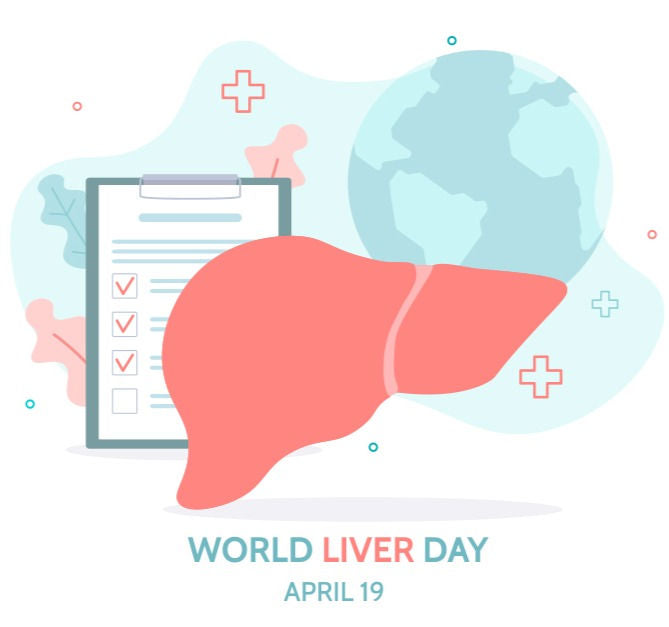
World Liver Day - 19th April
BioCertica Content TeamWorld Liver Day is observed on April 19th every year to spread awareness about liver-related diseases. The liver is the second largest and most complex organ in the body, with the exception of the brain. It is a key player in your body’s digestive system, and plays a crucial role in metabolism, digestion and detoxification. Everything you eat or drink, including medicine, passes through the liver. You cannot survive without a liver. It is an organ that can be easily damaged if you don’t take good care of it.
Liver diseases are on the rise globally, and it is estimated that around 10% of the world's population is affected by liver diseases. The leading causes of liver diseases include hepatitis B and C, alcohol abuse, non-alcoholic fatty liver disease (NAFLD), and autoimmune hepatitis. Liver disease doesn’t usually cause any obvious signs or symptoms until it is fairly advanced and the liver is damaged. At this stage, possible symptoms are loss of appetite, weight loss and jaundice.
What is World Liver Day?
World Liver Day is an initiative by the World Hepatitis Alliance to promote liver health and create awareness about the prevention and management of liver diseases. The theme for World Liver Day 2023 is "Liver Health: Care, Cure and Prevention."
The aim of this year's theme is to highlight the importance of early detection, proper care, and effective prevention strategies to manage liver diseases. It also aims to raise awareness about the risk factors of liver diseases and the measures one can take to prevent them.
One of the essential measures to prevent liver diseases is maintaining a healthy lifestyle. A balanced diet, regular exercise, and avoiding harmful habits such as smoking and excessive alcohol consumption can go a long way in protecting our liver health.
What can you do to keep your liver healthy?
To keep your liver healthy, follow a healthy lifestyle. Eat a healthy and balanced diet and exercise regularly to keep your liver healthy. Eat foods from all food groups: grains, protein, dairy products, fruits, vegetables and fats. Eat foods that have a lot of fiber such as fresh fruits and vegetables, whole grain breads, rice and cereals. Say NO to alcohol, smoking and drugs, as they can damage or destroy liver cells. Don't even be a target of passive smoking.
Consult your doctor before starting any medication: When medicines are taken incorrectly or in the wrong combination, then the liver can be damaged easily. Take care with toxic chemicals: chemicals such as aerosol and cleaning products and insecticides produce toxic substances that can injure liver cells. Maintain your weight: Obesity can cause non-alcoholic fatty liver disease.
Regular check-ups are also crucial in identifying liver diseases at an early stage. A simple blood test can detect liver diseases such as hepatitis B and C, which can be treated with antiviral medications. It is also essential to get vaccinated against hepatitis B, which is a highly contagious liver infection that can lead to severe liver damage.
In addition, it is crucial to raise awareness about the importance of organ donation. Liver transplant is a life-saving procedure for patients with end-stage liver disease. However, the demand for liver donors often exceeds the supply, and many patients die while waiting for a suitable donor. By promoting organ donation, we can save lives and improve the quality of life for many patients with liver disease.
BioCertica and liver health
At BioCertica, we promote healthy lifestyle on a daily basis and push you to keep your body healthy on a daily basis. That’s why we include a wide range of products and DNA tests for checking various health aspects. Moreover, we are constantly working on improving current and bringing new tests to market. Therefore, one of our future goals is to have a DNA test that will provide you detailed breakdown on your liver function and metabolic disorders based on your genetic makeup. In the meantime, please check our DNA Pharmacogenetics test, as it will reveal how your genetic variants interact with some liver medications such as insulin, statins, fibrates, interferons, corticosteroids, etc.



